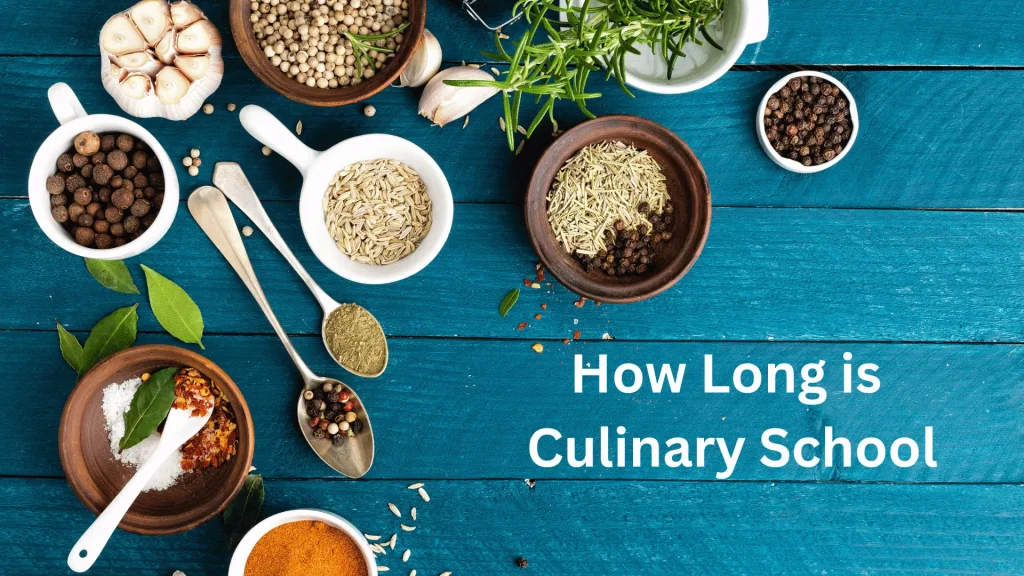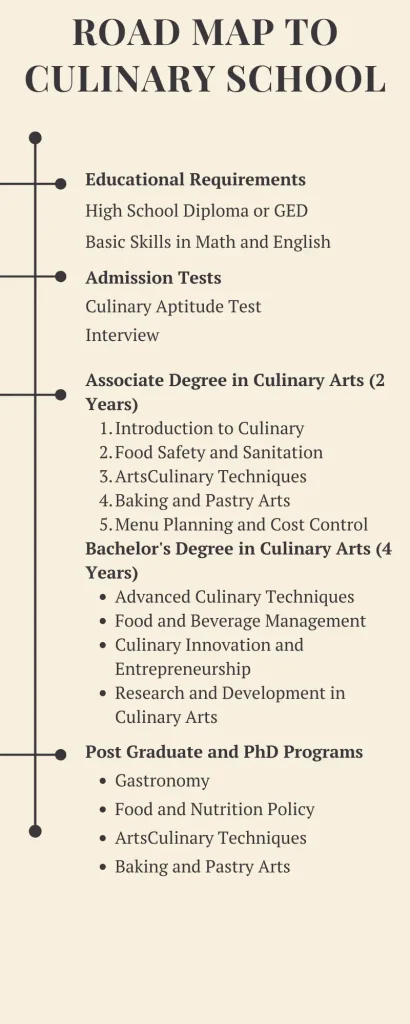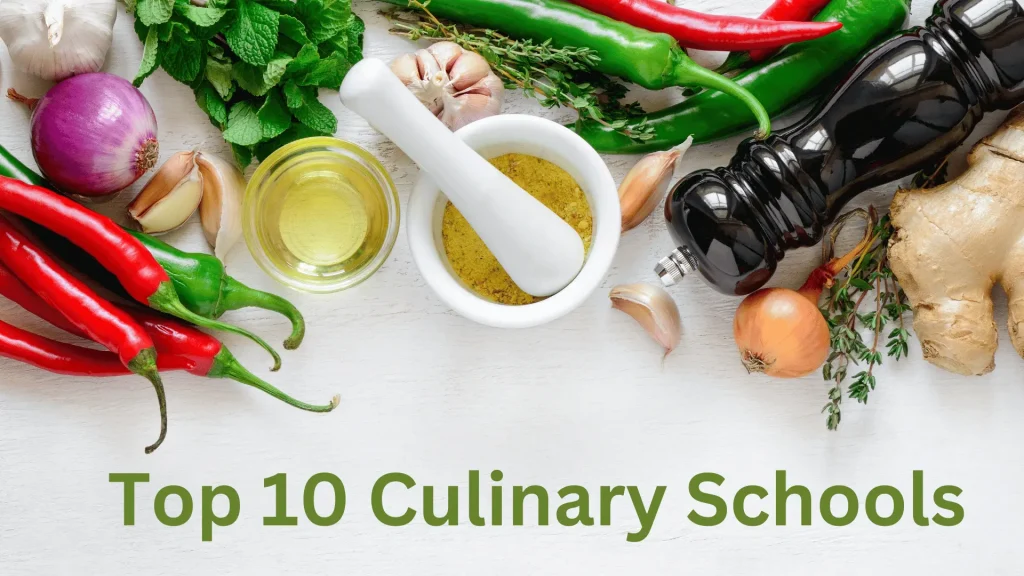How Long is Culinary School?
Embarking on a culinary career is an exciting journey filled with creativity and passion. A common question among aspiring chefs is, “How long is culinary school?” Understanding the duration and structure of culinary education is crucial for planning your future in the culinary arts.
What is Culinary School?
Culinary school is a specialized educational institution dedicated to teaching the art and science of cooking. These schools offer a range of programs designed to equip students with the skills and knowledge necessary for a successful career in the culinary industry. Courses cover various aspects of cooking, from basic techniques to advanced culinary arts.

Culinary schools also focus on the business side of the food industry, providing students with a well-rounded education that includes kitchen management, menu planning, and food safety. By the end of their studies, graduates are prepared to work in a variety of culinary settings, including restaurants, hotels, and catering companies.
How Long is Culinary School?
The duration of culinary school programs varies depending on the type of degree or certification pursued. Below is a year-wise explanation of undergraduate programs, including associate and bachelor’s degrees:
Associate Degree in Culinary Arts (2 Years)
An Associate Degree in Culinary Arts typically takes about two years to complete. This program is designed to provide a solid foundation in culinary techniques and kitchen operations. The curriculum usually includes courses such as:
Introduction to Culinary Arts: Basics of cooking, knife skills, and kitchen safety.
Culinary Techniques: In-depth training in cooking methods, including sautéing, grilling, roasting, and baking.
Baking and Pastry Arts: Fundamentals of baking, bread making, and dessert preparation.
Food Safety and Sanitation: Essential practices to ensure food safety in the kitchen.
Nutrition: Understanding the nutritional value of ingredients and creating balanced meals.
Menu Planning and Cost Control: Techniques for designing menus and managing kitchen costs.
Internship/Externship: Practical experience in a professional kitchen setting.
Bachelor’s Degree in Culinary Arts (4 Years)
A Bachelor’s Degree in Culinary Arts is a more comprehensive program that typically takes about four years to complete. This degree offers a deeper understanding of culinary arts and includes advanced courses in management and specialized culinary techniques. The curriculum may include:
Advanced Culinary Techniques: Exploration of modern cooking methods and international cuisines.
Food and Beverage Management: Training in managing food service operations, including restaurants and catering businesses.
Culinary Innovation and Entrepreneurship: Developing new culinary concepts and starting a food-related business.
Wine and Beverage Studies: Knowledge of wines, spirits, and beverage pairings.
Hospitality Management: Understanding the broader hospitality industry and its impact on culinary operations.
Advanced Baking and Pastry Arts: Mastery of complex baking techniques and dessert presentations.
Research and Development in Culinary Arts: Investigating new trends and technologies in the food industry.
Capstone Project/Internship: A culminating project or extended internship to demonstrate learned skills in a real-world setting.

How to Enter Culinary School
Entering culinary school typically involves meeting certain educational and testing requirements. Here’s what you need to know:
Educational Requirements
High School Diploma or Equivalent: Most culinary schools require applicants to have completed high school or obtained a GED.
Basic Skills in Math and English: Proficiency in these subjects is often necessary for understanding recipes, measurements, and communication in the kitchen.
Entrance Tests and Assessments
Culinary Aptitude Test: Some schools administer tests to assess applicants’ basic cooking skills and knowledge.
Interview: Many programs require an interview to gauge an applicant’s passion for the culinary arts and their career goals.
Application Process
Application Form: Complete the school’s application form, which may be available online.
Personal Statement: Write a personal statement explaining why you want to pursue a career in culinary arts and your long-term goals.
Letters of Recommendation: Obtain letters from teachers, employers, or culinary professionals who can attest to your skills and dedication.
By understanding the duration and structure of culinary school programs, along with the entrance requirements, you can better prepare for your journey into the culinary world. Whether you choose a short certificate program or a comprehensive bachelor’s degree, culinary school can provide the foundation you need for a successful career in the culinary arts.
Post Graduate and PhD Programs in Culinary Arts
While undergraduate programs provide a solid foundation in culinary skills, post-graduate and PhD programs offer advanced specializations for those looking to delve deeper into the culinary arts. Here’s a look at what these programs entail:
Post Graduate Diploma Programs (1 to 2 years)
Culinary Innovation and Food Technology: Focus on research and development in the food industry, including new cooking techniques and ingredient innovation.
Gastronomy and Food Culture: Study of food history, culture, and trends, examining how food influences and is influenced by society.
Food Science and Nutrition: Advanced understanding of food chemistry, nutrition, and health, integrating scientific principles with culinary practices.
Master’s Degree Programs (2 years)
Culinary Arts and Kitchen Management: Emphasis on advanced culinary techniques, leadership, and managing large-scale kitchen operations.
Hospitality Management: Combines culinary arts with hospitality management, preparing graduates for leadership roles in the food and hospitality industries.
Sustainable Food Systems: Study of sustainable practices in food production and consumption, focusing on eco-friendly and ethical culinary practices.
PhD Programs (3 to 5 years)
Culinary Science: In-depth research into food science, exploring new cooking methods, food preservation techniques, and ingredient properties.
Gastronomy: Advanced study of food and culture, often involving interdisciplinary research in history, sociology, and anthropology related to food.
Food and Nutrition Policy: Research focused on public health, nutrition, and food policies, aiming to influence food regulations and public dietary guidelines.
Top 10 Culinary Schools in the World
Choosing the right culinary school is crucial for your career. Here are ten of the top culinary schools worldwide, renowned for their exceptional programs and esteemed faculty:

Culinary Institute of America (CIA), USA
Courses Offered: Culinary Arts, Baking and Pastry Arts, Culinary Science, Hospitality Management.
Cordon Bleu, Paris, France
Courses Offered: Cuisine, Pastry and Confectionery, Hospitality Management, Wine and Spirits.
Apicius, Italy
Courses Offered: Culinary Arts, Baking and Pastry, Wine Studies, Hospitality Management.
Institute of Culinary Education (ICE), USA
Courses Offered: Culinary Arts, Pastry and Baking Arts, Culinary Management, Hospitality Management.
Basque Culinary Center, Spain
Courses Offered: Culinary Arts and Management, Gastronomy and Culinary Sciences, Wine Management.
Johnson & Wales University, USA
Courses Offered: Culinary Arts, Baking and Pastry Arts, Food Service Management, Nutrition.
Westminster Kingsway College, UK
Courses Offered: Culinary Arts, Professional Chef Diplomas, Hospitality and Event Management.
Kendall College, USA
Courses Offered: Culinary Arts, Baking and Pastry, Hospitality Management, Business Management.
Culinary Arts Academy, Switzerland
Courses Offered: Culinary Arts, Pastry and Chocolate Arts, Culinary Entrepreneurship, Hospitality Management.
Hattori Nutrition College, Japan
Courses Offered: Culinary Arts, Nutrition and Dietetics, Japanese Cuisine, Culinary Innovation.
Factors Affecting the Length of Culinary School
The duration of culinary school can vary based on several factors:
Type of Program: Certificate, diploma, associate degree, bachelor’s degree, or postgraduate studies.
Specialization: Some specializations may require more in-depth study and practical experience.
Institution: Different schools have varying curriculum structures and time requirements.
Part-Time vs Full-Time: Part-time programs extend the duration compared to full-time programs.
Prior Experience: Students with previous culinary experience may complete programs faster.
Internships/Externships: Required practical experiences can add to the program length.
Location: International programs might have different requirements and durations compared to domestic ones.
Final Verdict
The journey through culinary school is an investment in your future, providing you with the skills and knowledge needed to succeed in the culinary world. The duration of your education will depend on your career goals and the program you choose. Whether aiming for a quick certificate or a comprehensive bachelor’s degree, culinary school is a crucial step towards becoming a professional chef.
FAQs
How long does it take to become a professional chef?
Becoming a professional chef typically takes 2 to 4 years, depending on the culinary program and individual progression.
Do I need a degree to become a chef?
While not mandatory, having a culinary degree can significantly enhance your skills and job prospects in the competitive culinary field.
Can I work while attending culinary school?
Yes, many students work part-time while attending culinary school. Some programs also offer flexible schedules to accommodate working students.
What are the costs associated with culinary school?
Costs vary widely depending on the institution, program length, and location. Financial aid and scholarships are often available to help offset expenses.
What career opportunities are available after culinary school?
Graduates can pursue various careers, including restaurant chef, pastry chef, food stylist, culinary instructor, food writer, and restaurant manager.
